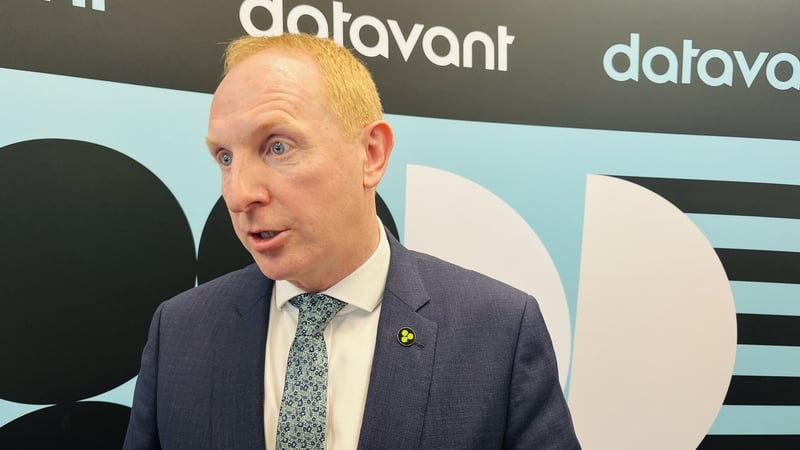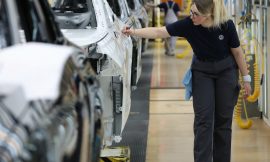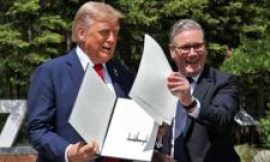On Monday, the Datavant company held an event at Galway’s Portershed to announce the establishment of a global Research and Development hub in the city.
Blue skies and warm weather put a spring in the step of those in attendance.
The decision by the firm will lead to the creation of 125 jobs between now and 2027.
It’s another example of the cluster of enterprise that’s evolved around the city’s medical technology sector.
The presence of large multinational firms has served as an incubator for local start-ups, providing goods and services to the bigger companies.
It’s also led to an increase in the number of highly qualified graduates in the area, attracting further inward investment and broadening the reach of the medtech roots-system.
The success of this approach has brought jobs and a wider economic benefit to the city and beyond.
But the attitude and planned approach of the Trump administration has increased concerns about the future outlook.
As guests gathered for the formal part of Monday’s launch, the mood was upbeat. But there was no elephant in the room either. The impact and extent of any tariffs to be imposed on the EU, by the US, loomed large in conversations.

Chief among the chatter was the word ‘uncertain’. There’s agreement that this situation is far from ideal, and a kind of exasperated frustration at events being out of our hands.
On his arrival, Minister for Employment Peter Burke said he was confident the foundations were in place for the country to overcome any challenges resulting from tariffs.
He said there was a need to focus on responding to problems “inside our control”, making particular reference to the infrastructural improvements required, to demonstrate Ireland’s attractiveness for multinational investment.
That emphasis on building on what we have is echoed by the Chief Executive of the IDA, Michael Lohan.
He says there’s a recognition from established companies here that Ireland has a lot to offer and is now a proven location for investment.
But he acknowledged too, the difficulty arising from the wider uncertainty over the US plans.
“The reality of the uncertainty is reflected on the stock exchange; in terms of investment decisions; and companies focusing on making the right decisions for growth and opportunity.”
Wednesday’s announcements brought partial clarity, but the sword of Damocles still hangs.
Since the details were revealed, businesses have been trying to determine what they can about the potential consequences and the likely timeframes they’re operating to.
It’s not an easy puzzle to solve, and there’s also a prospect of it being jumbled further.
This weekend there’s relief that the pharmaceutical sector was not included in the first raft of tariff announcements but also a corresponding lack of certainty about what could come down the track.
In Mayo, where thousands are employed in firms like Abbvie, Baxter and Hollister, the actions undertaken by Washington are being closely watched.
But again, there’s a realisation and acceptance that everyone involved will just have to wait and see how things play out.

CEO and founder of the Galway based Aerogen company John Power says that’s part of the challenge.
“No one knows where this will end up and trying to adjust your business model, until you know what the reality is going to be, would be futile,” he says.
Whatever ultimately unfurls, the upheaval is already having an impact.
“Uncertainty is very difficult in terms of investment. [It] stalls business, and that’s what we’re generally seeing across the sector. There’s a lot of holding back now, of investment, and that will continue, until there’s a settlement to this dispute,” Mr Power said.




